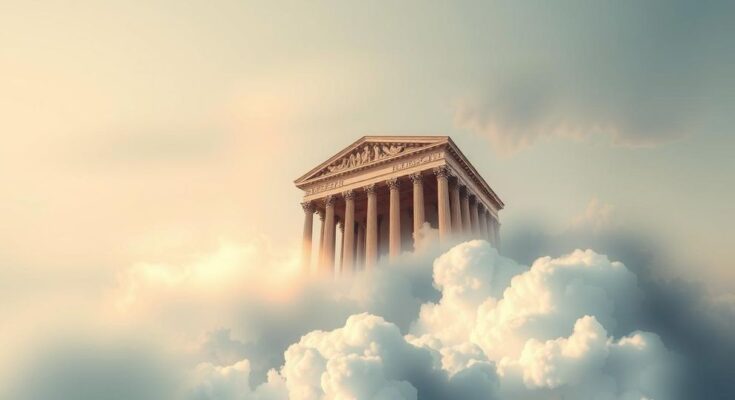Cameroon is poised for elections in 2025, with President Paul Biya, aged 91, likely vying for an eighth term amid concerns over his health and ability to govern. Despite a struggling economy and ongoing civil conflict, fragmented opposition parties fail to provide viable alternatives. Biya’s long-standing rule raises questions about the future of democracy and stability in Cameroon as the country grapples with corruption and public discontent.
As Cameroon approaches its upcoming elections, President Paul Biya, now 91 years old, is anticipated to run for an eighth consecutive term, potentially extending his reign as Africa’s longest-serving leader. Despite concerns about his health, party members have shown strong support for his candidacy, indicating that his nomination is highly likely. Political commentator Dr. John Akpo suggested that discussions about Biya’s potential successor are premature, highlighting the stability of his candidacy despite his advanced age.
Having ruled for over 42 years, Biya could be 99 by the time the next election is held in 2032 if elected again. While he holds support from certain opposition parties, critics question their intentions, claiming they were established to dilute real opposition efforts. Dr. Akpo views this situation as a tragedy for Cameroon, as many citizens feel disenfranchised by the political process.
Biya has been credited with instituting a multi-party democracy and fostering connections with Western countries. However, ongoing civil strife due to the seven-year conflict in Anglophone regions has hindered the country’s economic progress. Opponent Tamfu Richard argues that Biya’s age limits his ability to manage these conflicts effectively, as he has not experienced the realities on the ground for many years.
The ruling Cameroon People’s Democratic Movement (CPDM) relies significantly on support from coalition partners, including the Democratic Movement for the Defense of the Republic (MDR). Despite dwindling public support for these entities, they remain crucial for the CPDM’s parliamentary control. Political factions like the “G20” emerged in response to opposition leader Maurice Kamto’s growing influence, suggesting a tightening grip of state power.
Recently, local Catholic bishops expressed their views regarding Cameroon’s political landscape, emphasizing the need for better living conditions without issuing direct calls for Biya’s resignation. The bishops’ statements ignited criticism from government representatives, but the church’s role remains significant in shaping public opinion within the predominantly Catholic population.
Cameroon’s economic performance has seen fluctuations, with the World Bank reporting a drop in GDP growth to 3.3% in 2023. Although there was a slight rebound in early 2024, broader economic issues—such as inflation and ongoing conflicts—persist. Current poverty levels remain high, with about 23% of the population suffering from extreme poverty, while corruption continues to plague state functions.
Despite structural weaknesses such as inadequate infrastructure and dependence on commodity exports, the process of overcoming these challenges under another Biya term appears uncertain. The fragmented opposition lacks a unified strategy to present viable alternatives, raising concerns about the future governance of Cameroon. Opposition supporter Michele Ndoki identified a troubling desire among some citizens for continuity in leadership, which hinders potential change.
Cameroon is preparing for elections in 2025 as 91-year-old President Paul Biya is likely to seek an eighth term, raising questions about his ability to govern due to age and health concerns. Biya has ruled for over four decades, and as he contemplates another run, there is significant speculation regarding the future of Cameroon’s political landscape amidst ongoing civil conflicts and economic challenges. The CPDM party’s reliance on coalition support amid dwindling public confidence illustrates the complexities of governance in Cameroon, as various factions vie for power and influence. The role of the Catholic Church and the reactions from various political entities further complicate the climate of political discourse, hinting at deep-rooted challenges in governance and socio-economic conditions.
In summary, as Cameroon approaches its elections, President Paul Biya’s expected candidacy both epitomizes the nation’s prolonged leadership crisis and raises critical questions about governance amidst societal and economic challenges. The opposition’s fragmented nature and the entrenchment of political power complicate the prospects for meaningful change. The current atmosphere underscores the importance of unity within the opposition and the necessity for political reform to address the pressing issues of corruption, civil unrest, and economic stagnation.
Original Source: www.dw.com




